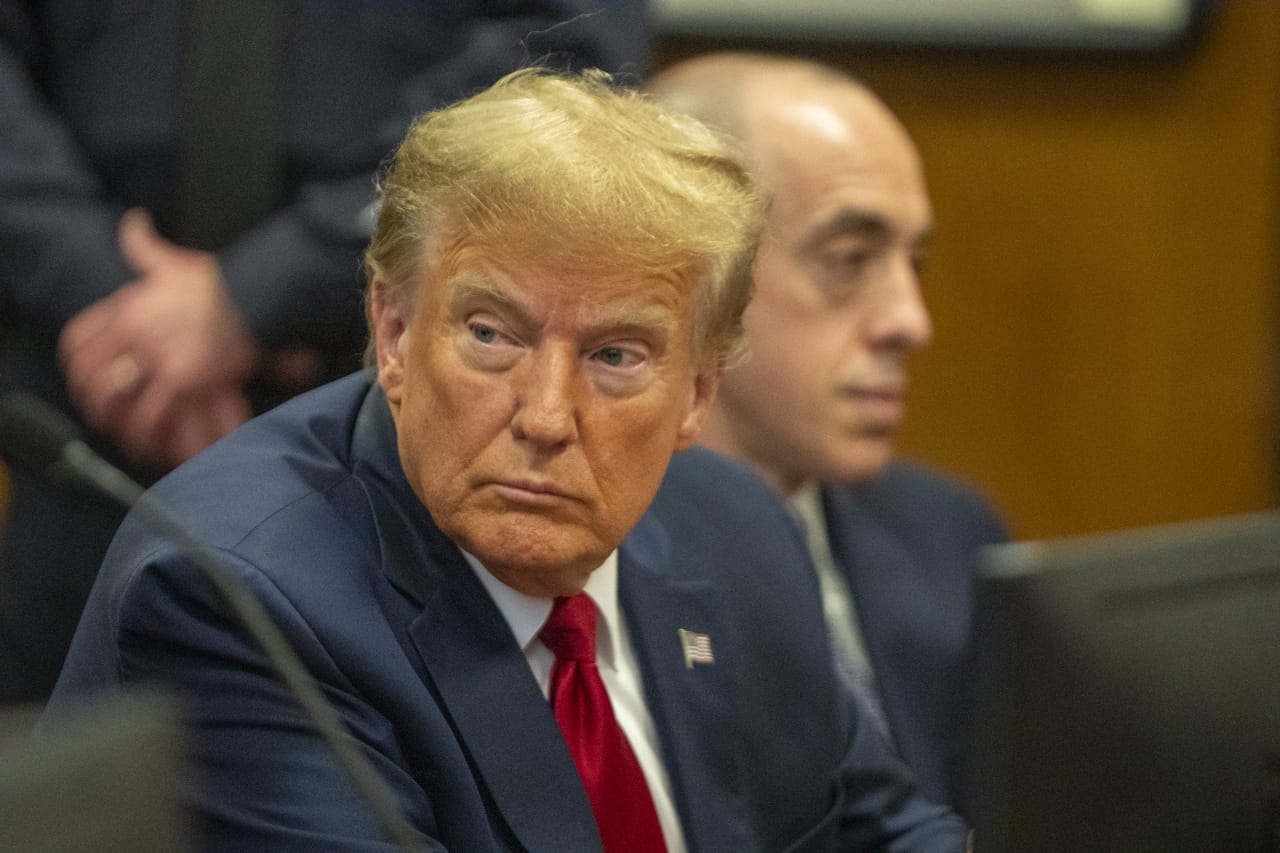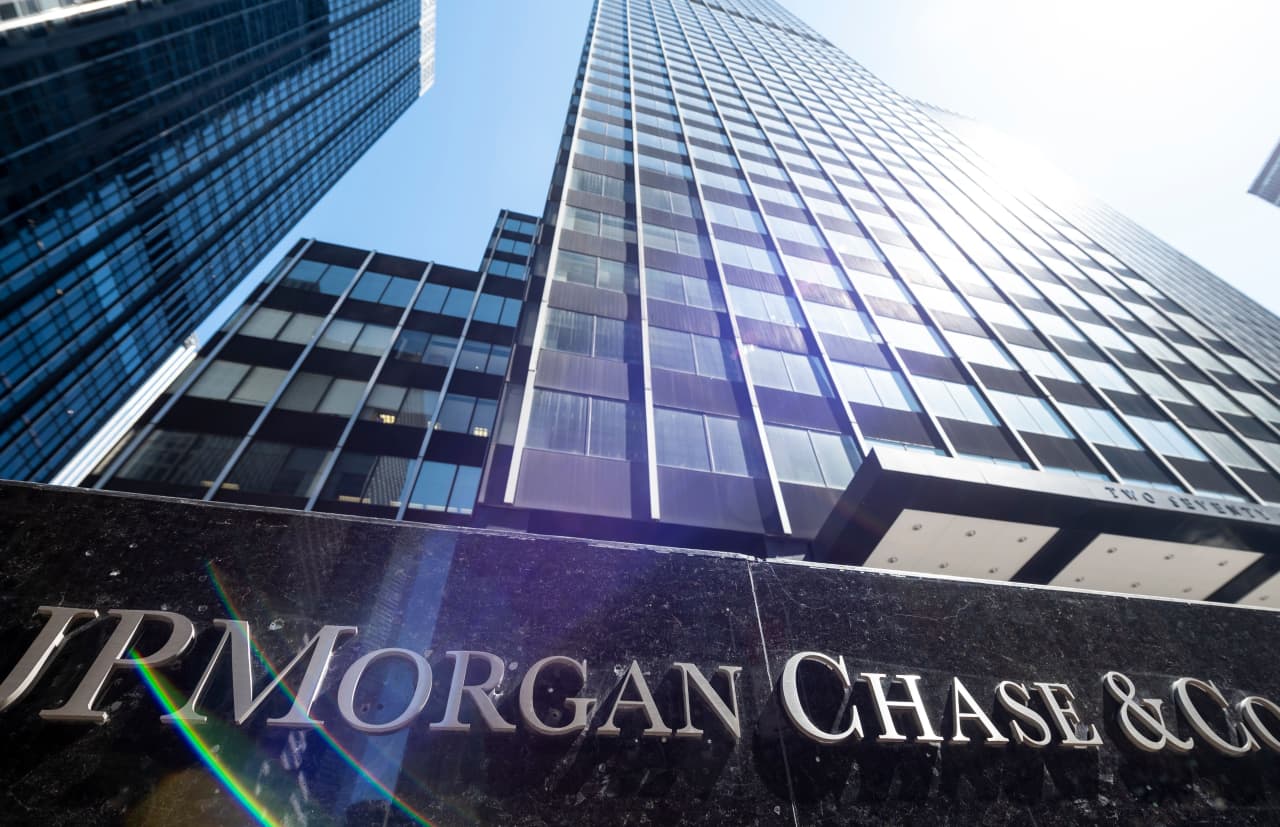Trump’s real estate business won’t end soon after New York fraud case ruling

A Manhattan judge delivered a crushing blow to Donald Trump on Friday, imposing civil fines totaling more than $450 million and imposing a three-year ban from the notorious world of New York real estate.
Trump and his Trump Organization were also banned from borrowing from New York-registered banks and finance companies for three years, according to a judge’s order.
But the decision in the civil fraud case brought by New York Attorney General Letitia James is not expected to punch the former U.S. president or the Trump Organization. At least not immediately.
“The Trump Organization will exist,” said Evan Gotlob, a partner at the law firm Saul Ewing and a former New York City prosecutor specializing in public corruption and white-collar investigations. “It’s going to be difficult, but I think it’s still there.”
Gotlob said the Trump Organization could likely stand to lose hundreds of millions of dollars in fines, but the three-year financing ban “may be the worst part” because the real estate industry operates on borrowed money. Friday’s decision could sweep foreign lenders with affiliates registered in New York.
“Real estate development requires access to money,” he said.
Weeks before New York Supreme Court Justice Arthur Engoron’s ruling, Trump said he would appeal the ruling. Legal experts say the appeals process could take weeks, if not months. A stay order suspends a decision pending an appeal.
“Today’s ruling is a grave miscarriage of justice,” a Trump Organization spokesperson said in an emailed statement. “If the Attorney General were permitted to retroactively involve himself in private commercial transactions between complex parties, no business transaction entered into in New York State would be outside the Attorney General’s authority.”
a historic ruling
Trump inherited his father’s real estate company in the late 1970s, and his personal life and business dealings became frequent tabloid material over the next four decades.
Trump’s real estate business also fueled his branding business, his work as a TV personality, and his rise to America’s highest elected office.
The judge’s decision, if upheld, would temporarily bar Trump and his two adult sons from the New York real estate industry. But it also raises practical questions about how to untangle the Trumps from the web of business partnerships, existing lenders, tenants and investors who own the bonds that financed the properties.
The ruling extends the supervision period of court-appointed Trump Organization watchdogs to at least three years. But it won’t be a simple task.
To determine Trump’s wide-ranging business dealings, the monitors have already identified 415 individual businesses associated with the company, after reducing the number of entities from about 500 during the trial. Most of them relate to borrowing entities, licensing and management agreements.
“The commercial real estate business is messy and complex,” said Will Thomas, an assistant professor of commercial law at the University of Michigan’s Ross School of Business who has closely investigated President Trump’s fraud cases.
“It is the beginning of a headache, not the end.”
someone else’s money
The New York court’s decision culminates a multi-year investigation into Trump’s business practices as he tries to reclaim the White House for a second term.
The penalty was designed to punish former presidents who pooled their personal wealth with property values, a practice that Attorney General James argued gave them more favorable loan terms than they otherwise would have.
Trump has denied wrongdoing and called the trial a “witch hunt” as the Republican candidate campaigns to secure the presidential nomination in November.
In addition to the ruling, the case also sheds light on how owners can finance high-end commercial real estate without putting their personal wealth at risk.
“Trump has been using other people’s money for most of his deals for decades,” said Norman Miller, retired chair of real estate finance at the University of San Diego’s Knauss School of Business.
“Certainly most of them should assume that Trump is not guilty of the valuation violations with which he is accused,” Miller said, adding, “The courts should recognize that if they punish Trump, they will punish others as well.”
real estate spotlight
Shortly after Trump took office, he was able to refinance much of his outstanding property debt, which “improved his solvency and liquidity for a time,” Miller said.
Still, Trump owes about $122 million in senior debt to 40 Wall Street, an office tower in Manhattan’s financial district that has long been a treasure of the Trump Organization.
The debt, which is currently on a watch list for potential default risk, was packaged with other loans into several commercial mortgage bond deals and sold to investors more than a decade ago. The Trump loan is scheduled to mature in July 2025, according to CredIQ and Trepp.
see: Donald Trump tightens control over landmark Manhattan skyscrapers at center of New York court lawsuit
Even before Friday’s ruling, Trump faced a difficult situation with his office building needing refinancing. In large cities from New York to Chicago and San Francisco, debt for office real estate or buildings was trading at discounts of more than 60%.
Distress also lurks in the riskier bonds used to finance the Vornado Realty Trust VNO.
It partnered with Trump on 1290 Avenue of Americas, a 43-story office building in midtown Manhattan.
The senior notes that financed the building were discounted by at least one Wall Street bank by about 5% from their original par value in January after rallying for about two months on expectations of a Federal Reserve interest rate cut, according to Empirasign. I was bidding at the given price. , which tracks trading activity in the sector.
But subordinated notes, which trade less frequently and are more vulnerable to losses if borrowers default, were valued at $65 to $75 by debt holders last October. The bond is issued with the expectation that it will be repaid in full at maturity for $100.
Vornado did not respond to a request for comment.
anxious tenant
Trump’s future in the New York real estate industry and his access to credit have become the top concerns of office tenants, said one broker who has personally placed several tenants at Trump properties over the past five years.
“This case could be judged and ultimately decided in a number of ways,” said the broker, who was not authorized to speak publicly on the matter.
Other than default, New York City buildings are rarely separated from their owners, even temporarily. A potential precedent is an incident about 10 years ago when the U.S. government seized a 36-story office tower located at 650 Fifth Avenue in Manhattan in a terrorism-related incident, claiming that Iran was effectively controlling it.
But after operating the building for a decade, the government’s hopes of selling it for nearly $1 billion to distribute the proceeds to victims of the attacks were dashed after a Manhattan appeals court overturned the ruling.




